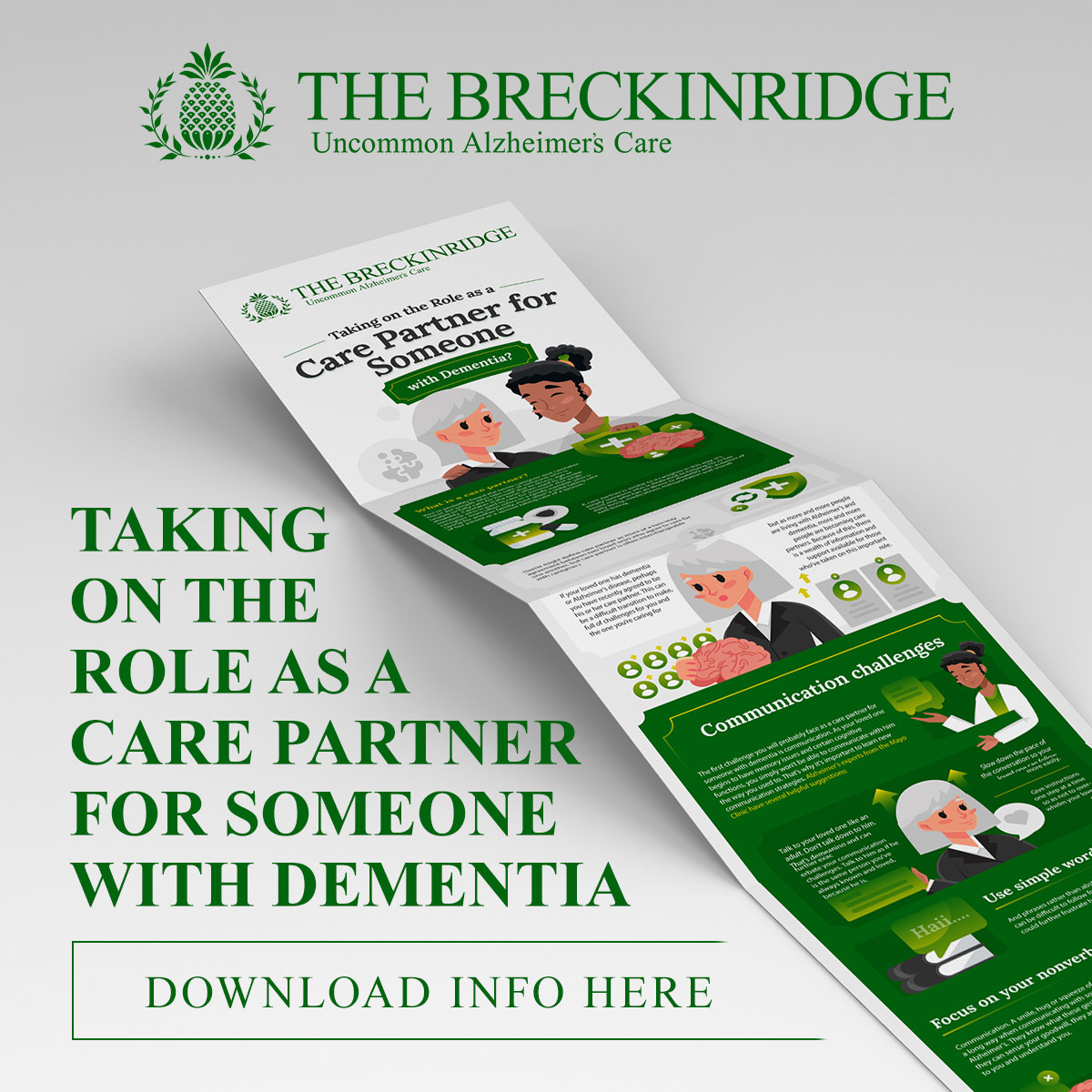Dementia and Driving: When Is It Time to Stop?

Dementia and Driving
Most older adults will face a day when driving is no longer a safe option, but for those who are living with dementia or Alzheimer’s, that day may come sooner than it does for most.
Giving up driving is difficult. Even if the person living with dementia or Alzheimer’s has a supportive network of family or a caregiver who can help with transportation, not being able to drive yourself is a loss of independence and signifies a new phase of life where more and more independence could be taken away.
For those who do not have the privilege of family or a caregiver who can help with transportation, they may wonder how they will get to the grocery store, pharmacy, church or other places they frequent.
This is why the topic of driving with dementia is important and should be addressed early, as soon as you or a loved one is diagnosed, so you can make safe, informed decisions that empower the person living with dementia rather than strip him of his feeling of independence.
How does dementia affect driving?

Symptoms of dementia and Alzheimer’s include memory loss, disorientation and decreased cognitive abilities. Some forms of dementia such as frontal temporal dementia affect your mobility and movement. Since dementia is degenerative, meaning it gets worse with time, eventually anyone who is diagnosed with any form of dementia will not be able to drive because strong cognitive abilities are essential for safe driving.
Consider everything drivers must be aware of:
Driving requires you to be mentally sharp at all times, aware of any potential danger to yourself or others. If your cognitive function is declining, if you can’t remember where you’re going or the rules for a four-way stop, you will endanger yourself and others.
Share this Infographic Image On Your Site
<p><strong>Please include attribution to https://thebreckinridge.com/ with this graphic.</strong><br><br><a href="https://thebreckinridge.com/ways-to-stay-engaged-socially-with-dementia/"><img src="https://thebreckinridge.com/wp-content/uploads/2022/11/2-taking-on-the-role-as-a-care-partner-for-someone-with-dementia-thebreckinridge.jpg" alt="Taking on the Role as a Care Partner for Someone with Dementia" width="1200px"></a></p>When should dementia patients stop driving?
As soon as you receive a dementia diagnosis, you should seek an independent driving evaluation. The Alzheimer’s Association in partnership with the National Highway Traffic Safety Administration recommends getting an evaluation done by an occupational therapy driving rehabilitation specialist. This type of specialist will be able to determine the driver’s current level of function and if he or she can continue driving for the time being or if other options should be considered.
It’s important to note that these evaluations are for those with early dementia. Someone who has progressed to the moderate or severe stage of dementia should stop driving immediately. Someone with mild dementia should also likely stop driving but can seek an evaluation first.
It’s also important to note that once you have a diagnosis, you should not rely on your own assessment or evaluation to decide if you can continue to drive nor should you rely on a loved one’s or caregiver’s opinion. Seek a proper evaluation from a specialist who can see things you can’t and will be able to provide a proper and full evaluation.
You can also talk to your or your loved one’s doctor. A neurologist or geriatrician can ask a series of questions to determine cognitive abilities and decide if driving would be unsafe or if the best next step is to receive an evaluation from an occupational therapist.
You can search for an occupational therapist near you who specializes in driving rehabilitation and evaluations at the American Occupational Therapy Association website here.
How do you stop someone with dementia from driving?
For loved ones and caregivers who have been told by a specialist or doctor that their loved one can no longer drive, the next natural question is: how are we going to take away their keys?
First, you shouldn’t simply hide their keys. That will only upset them and aggravate the situation. Instead, approach this subject carefully. Remember, telling an adult who’s lived an independent life for 40 or more years that she can’t drive anymore is traumatic. You are taking away one of her greatest measures of independence: an ability to go where she wants when she wants. And this will be the first of many independent privileges dementia will take from her.
The Alzheimer’s Association suggests planning out the conversation beforehand. Tell your loved one your concerns. Focus on the driving evaluation or a recommendation from a doctor to no longer drive to keep the conversation neutral. And know that this will probably be the first of many conversations about your loved one’s ability to drive or perform other daily functions.
The Alzheimer’s Association also notes that you can get a prescription written by a doctor that prescribes your loved one to retire from driving. This could help legitimize your request and make your loved one see the severity of the situation.
No matter what you do, be sure to list all options still available to your loved one for transportation. Make sure to have a plan in place that you’ve discussed with other family members or caregivers that addresses who will drive your loved one to certain places on what days and at what time. Let your loved one know that he will be able to go where he needs to when he needs to and how you are going to make that happen, whether you or a caregiver will personally drive him, or if you’ve set up a rotation with friends and family members who can chip in when needed.
For those who don’t have family or a caregiver for transportation, the Alzheimer’s Association has an excellent list of resources that provides information on how those who are living with dementia can find local transportation. Some of these resources include:
The National Aging and Disability Transportation Center
2-1-1 (a helpline for those who need access to immediate local resources)
Learning you are no longer able to drive or having to tell this to a loved one is incredibly difficult. Don’t take the conversation lightly. Research your options and find out as much information as possible about alternative transportation solutions, so you or your loved one can feel equipped and cared for during this transition.






